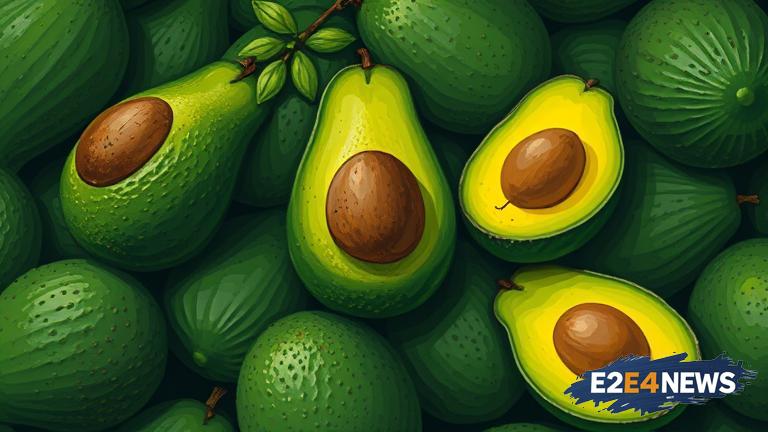Mexico’s avocado industry has experienced a remarkable growth in recent years, with the country becoming the world’s largest producer and exporter of avocados. The Mexican government has implemented various initiatives to support the growth of the avocado industry, including providing financial assistance to farmers and investing in research and development. As a result, Mexico’s avocado exports have increased significantly, with the country exporting over 1 million tons of avocados in the past year alone. The majority of these exports have gone to the United States, which is the largest consumer of Mexican avocados. However, Mexico is also increasing its avocado exports to other countries, including Japan and Europe. The growth of Mexico’s avocado industry has had a positive impact on the country’s economy, with the industry generating billions of dollars in revenue each year. The industry has also created thousands of jobs, both directly and indirectly, and has helped to reduce poverty in rural areas. Despite the many benefits of the avocado industry, there are also some challenges that need to be addressed. One of the main challenges facing the industry is the issue of sustainability, with many avocado farms relying on intensive farming practices that can harm the environment. Additionally, the industry is also facing challenges related to water scarcity, with many avocado farms located in areas with limited water resources. To address these challenges, the Mexican government and industry stakeholders are working together to implement more sustainable farming practices and to reduce the industry’s environmental impact. This includes the use of drip irrigation systems, which can help to reduce water waste and promote more efficient use of water. The industry is also investing in research and development, with a focus on improving the yield and quality of avocados, as well as reducing the environmental impact of avocado production. Furthermore, the Mexican government is also providing support to small-scale farmers, who are often struggling to compete with larger farms. This includes providing training and technical assistance, as well as access to financing and other resources. The growth of Mexico’s avocado industry has also had a positive impact on the country’s trade relationships, with the industry helping to strengthen ties with other countries. For example, Mexico’s avocado exports to the United States have helped to promote trade between the two countries, with the United States being one of Mexico’s largest trading partners. Similarly, Mexico’s avocado exports to Japan and Europe have helped to promote trade with these countries, and have helped to diversify Mexico’s export market. In addition to the economic benefits, the growth of Mexico’s avocado industry has also had a positive impact on the country’s food security, with avocados being a nutritious and versatile fruit that can be used in a variety of dishes. Avocados are also a good source of healthy fats, fiber, and various essential vitamins and minerals, making them a popular choice among health-conscious consumers. The industry is also working to promote the health benefits of avocados, with many companies investing in marketing and advertising campaigns to promote the fruit. Overall, the growth of Mexico’s avocado industry has been a major success story, with the industry generating billions of dollars in revenue each year and creating thousands of jobs. However, the industry must also address the challenges related to sustainability and environmental impact, in order to ensure that the industry continues to grow and thrive in the long term. The Mexican government and industry stakeholders are working together to address these challenges, and to promote the long-term sustainability of the avocado industry. With the right support and investment, the industry is likely to continue to grow and thrive, and to remain a major contributor to Mexico’s economy and food security.
